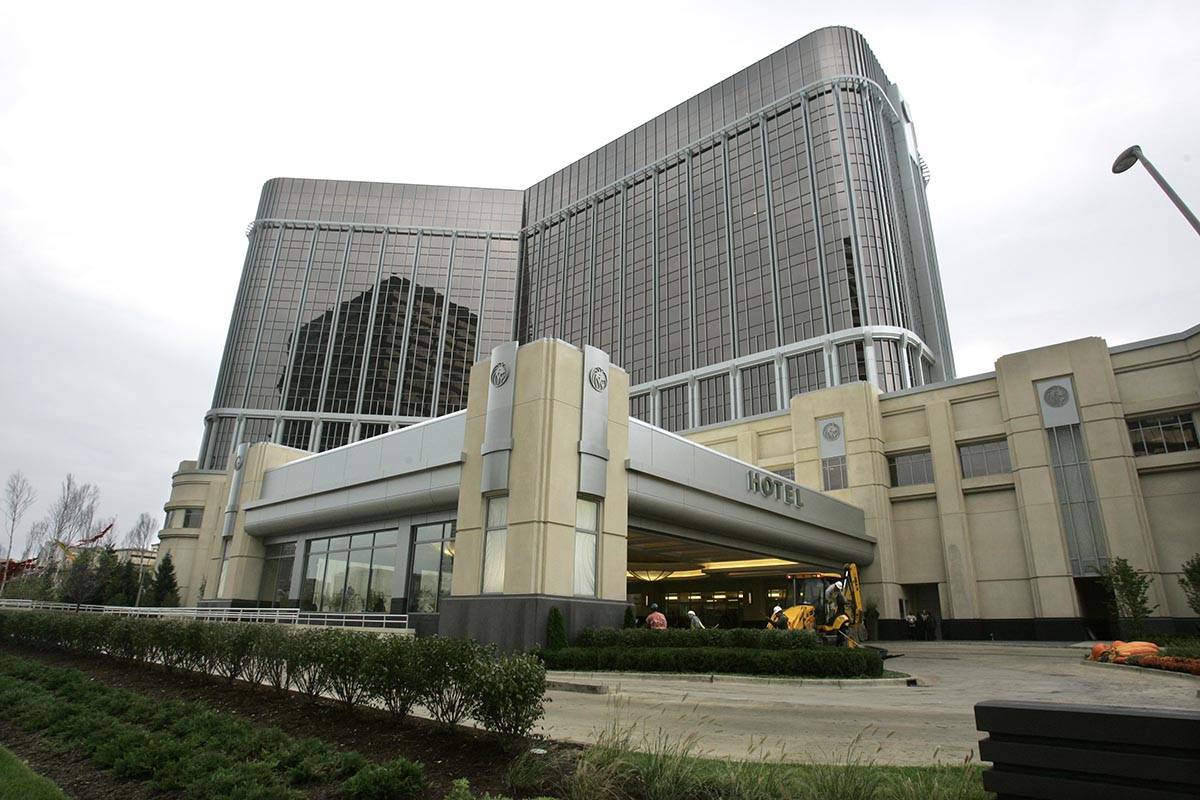Could casino closings in Michigan be sign of things to come in Vegas?
Casinos in Michigan are closing for at least three weeks in an attempt to control the spread of COVID-19 — a move that gaming industry experts see as potentially a sign of things to come for casinos in Las Vegas.
The closures come as a growing number of cities and states across the country are once again shuttering their nonessential businesses, including casinos, in the face of a worsening pandemic.
“It is hard to imagine a world in which we don’t see more restrictive operating environments for U.S. retail casinos across the next two quarters,” according to Chris Grove, a financial analyst with Eilers & Krejcik Gaming. “The only questions are how restrictive measures will be and what specific form those measures will take.”
The potential for widespread casino closures after closures in the spring “is a clear negative for the industry,” he said. The company senses that casinos will be “far more resistant” to potential closures now than earlier in the year, when it was less clear what the consumer appetite for visiting a casino would be during a pandemic, he said.
Sisolak’s warning
It remains to be seen whether Nevada’s gaming industry will receive new restrictions like those elsewhere. Gov. Steve Sisolak warned last week that he could take “further action” if the number of coronavirus cases didn’t drop significantly over a two-week stretch.
Nevada’s tourism and hospitality industries drive the state’s economy, and they’ve been subject to their own set of COVID-19 rules and regulations. Sisolak emphasized his preference not to impose new restrictions.
“Some people are going to ask, why not limit retail or casino resorts or restaurants right now? That’s a fair question,” he said. “That’s the tightrope I was referring to. That is the tightrope of trying to balance controlling the COVID spread, protecting our hospitals from surges, and at the same time not destroying and shutting down our economy.”
On Monday, a governor’s office spokeswoman issued a follow-up statement:
“The Governor is incredibly concerned about the severity of COVID-19 in our State, as demonstrated in the increase in numbers that have been experienced,” spokeswoman Meghin Delaney wrote. “As mentioned last Tuesday, the Governor announced a 2 week period of recommended Stay At Home 2.0 and within that timeframe he and his administration are currently exploring all mitigation options.”
Surges in other states prompted Michigan and New Mexico leaders to impose restrictions to curb the rising number of coronavirus cases, hearkening back to initial shutdowns across the country when the pandemic first gripped the U.S. in March.
New Mexico’s closure order began Monday. The state has 24 tribal casinos, according to its gaming regulatory board. The Michigan closures take effect Wednesday.
There are 27 casinos in the state of Michigan, 24 of which are tribal. Among the remaining three commercial, Detroit-based casinos is the 400-room MGM Detroit, operated by Las Vegas-based MGM Resorts International, which a company representative said will close its doors for at least three weeks beginning 11 p.m. Tuesday.
“We understand these are challenging times and are committed to doing our part for the well-being of our employees, guests and the State of Michigan,” a company statement read. “We look forward to when we can welcome back our guests with a continued focus on our comprehensive health and safety protocols.”
The others are the 400-room MotorCity Casino Hotel operated by privately held Ilitch Holdings, affiliated with several Detroit sports teams and the Little Caesars Enterprises pizza franchise, and the 400-room Greektown Casino-Hotel, owned by the Vici Properties real estate investment trust and operated by Pennsylvania-based Penn National Gaming.
A Wynn Las Vegas spokesperson said the company had “nothing new to report” regarding casino closures. Representatives from other major, Nevada-based gaming companies didn’t return requests for comment regarding the status of their own properties in the state and across the country.
Uphill battle
Gaming industry watchers say ensuring public safety while also protecting state economies is a tricky balancing act.
“Generally speaking, most major casinos can survive a short-term shutdown from a balance sheet perspective,” said Grove, the analyst. “Some independent operators may face more of a struggle. But it’s hard to appreciate what kind of lasting damage a shutdown of any length will do to any casino business.”
Analyst John DeCree with Union Gaming said the industry is focusing on the “promising” progress of a coronavirus vaccine and looking ahead to the next six to 12 months.
“We believe this favorable vaccine outlook outweighs the risk of potential sporadic and short-term closures like the one mentioned in Michigan,” he wrote in an email.
The gaming industry as a whole is still recovering from the initial shutdowns of the spring, added Brendan Bussmann, partner with Global Market Advisors LLC. More shutdowns are a short-term solution to a long-term problem, he said. New restrictions could set back the financial gains the industry has made since casinos reopened.
A three-week closure like Michigan’s hurts industries that are “probably financially softest around this time of year,” according to Michigan State University hospitality professor Michael McCall. Closures hurt the companies, but they disproportionately hurt the rank-and-file employees who risk losing a job or income, he said.
Closing Michigan’s casinos might not hurt the state’s overall economy as such a move might to do gaming- and hospitality-reliant Nevada, he said. McCall said Las Vegas’ economy, including its casinos, must find other means to bring in customers to protect its long-term economic health.
“There isn’t a city I know that’s more efficient at extracting money from people,” McCall said.
DeCree said he expects Sisolak would first try mitigating the virus’ spread via measures like limitations on hours and gathering sizes before considering another shutdown, given the industry’s importance to Nevada’s economy.
The state’s gaming industry already faces an uphill battle in bringing back convention and business travel, said Bussmann.
“Vegas will always be Vegas, but the long term recovery of it will be that much further pushed out knowing that a potential shutdown could return again, especially if it does,” he said.
Contact Mike Shoro at mshoro@reviewjournal.com or 702-387-5290. Follow @mike_shoro on Twitter. Review-Journal staff writers Marvin Clemons and Rick Velotta contributed to this report.


















